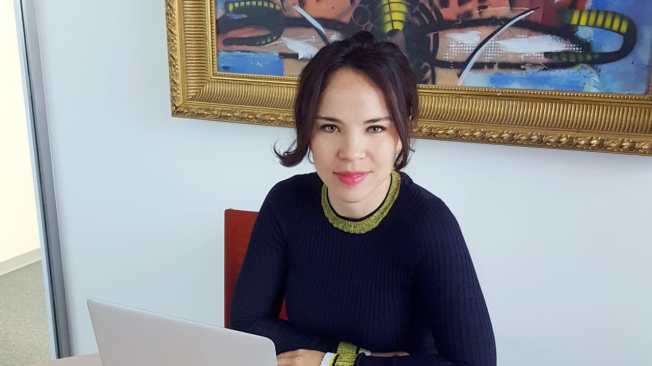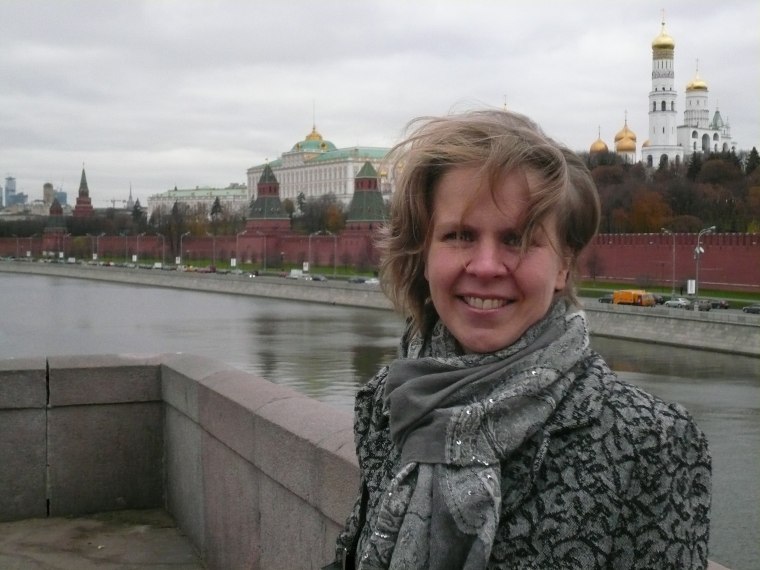New York, August 18, 2023—Russian authorities should renew the visas and media accreditation of Dutch journalist Eva Hartog and Finnish journalist Anna-Lena Laurén and let them work freely in the country, the Committee to Protect Journalists said Friday.
On Wednesday, August 16, Politico Europe and Dutch weekly De Groene Amsterdammer reported that Russian authorities refused to renew Hartog’s visa, and gave her six days to leave, after working in the country for 10 years. The Dutch journalist writes for both outlets.
On Tuesday, August 15, the Swedish newspaper Dagens Nyheter reported that Russia’s Ministry of Foreign Affairs had not renewed the accreditation of its Moscow correspondent, Laurén, also a reporter for Finland’s Swedish-language newspaper Hufvudstadsbladet (HBL), who had worked in Russia for 16 years.

Russia tightened visa and accreditation rules for foreign correspondents after its February 2022 full-scale invasion of Ukraine, with renewals required every three months, rather than once a year as previously. Both a visa and media accreditation are required for reporters to work legally in Russia.
“Russian authorities’ opaque administrative procedures cannot hide their real agenda, which is to silence critical voices and progressively squeeze Western journalists out of the country,” said Carlos Martinez de la Serna, CPJ’s program director. “Russian authorities should renew Eva Hartog and Anna-Lena Laurén’s accreditation and visas at once and let them work freely in the country.”
On August 7, a representative of the Russian Foreign Ministry told Hartog that “relevant authorities” had decided that her visa would not be extended, and she had six days to leave the country, without giving further details, Politico Europe reported on August 16.
The same day, Russian Foreign Ministry spokeswoman Maria Zakharova said on Telegram that “given the harassment of Russian journalists and media outlets by the EU, which the Dutch government has joined, the non-extension of a visa for a citizen of the Netherlands should not raise any questions.”
Hartog confirmed to CPJ that she left Russia on August 13 and will continue to report on the country for Politico Europe.
On August 4, Hartog posted on X, formerly known as Twitter, that an extra 19 years had been added to the jail term of Russian opposition leader Alexei Navalny. Earlier this year, she wrote about anti-war sentiments in Russia, and the case of Alexei Moskalyov, who was jailed for two years because his 12-year-old daughter drew a pro-Ukrainian picture at school.
In an emailed statement to CPJ, Politico Europe’s editor-in-chief Jamil Anderlini said that the outlet was “extremely disappointed” that Hertog had been forced to leave Russia, adding that the publication retained an “unwavering commitment to covering the Russian government and its war in Ukraine.”
In the second case, Finnish journalist Laurén told CPJ via messaging app that a representative of the Russian Foreign Ministry told her by phone in early May that she would not get her new accreditation in time to renew her visa, which expired in mid-May.
Laurén said she left Russia in late April, after publishing a profile of Russian Foreign Minister Sergey Lavrov, which the Russian Embassy in Finland described as “fake news” on social media.
Without a new visa, she has been unable to return. “After three months, it’s clear they’re kicking me out,” Laurén said, adding that Russian authorities kept telling her that they had yet to decide on her application.
Laurén, who won Finland’s 2021 Grand Journalism Award for her reporting on Russia, continued to write about Russia, most recently the rebellion by mercenary commander Yevgeny Prigozhin, who ordered his Wagner troops to march on Moscow in June.
Russia has a history of expelling foreign reporters, including The Guardian’s Luke Harding in 2011, the BBC’s Sarah Rainsford and Tom Venninck of the Dutch daily de Volkskrant in 2021, and Finnish journalist Arja Paananen in February 2023.
In March, The Wall Street Journal’s Evan Gershkovich was arrested on espionage charges, the first American journalist to face such accusations by Russia since the end of the Cold War. He faces up to 20 years in jail. On May 23, a Moscow court held a closed-door hearing and granted the Russian Federal Security Service’s request to extend Gershkovich’s detention until August 30.
In June, Russian authorities denied accreditation to foreign journalists from publications in “unfriendly” countries for the St. Petersburg International Economic Forum, an annual international business event.
CPJ emailed the Russian Foreign Ministry and called the Russian Ministry of Interior but did not receive any reply.
